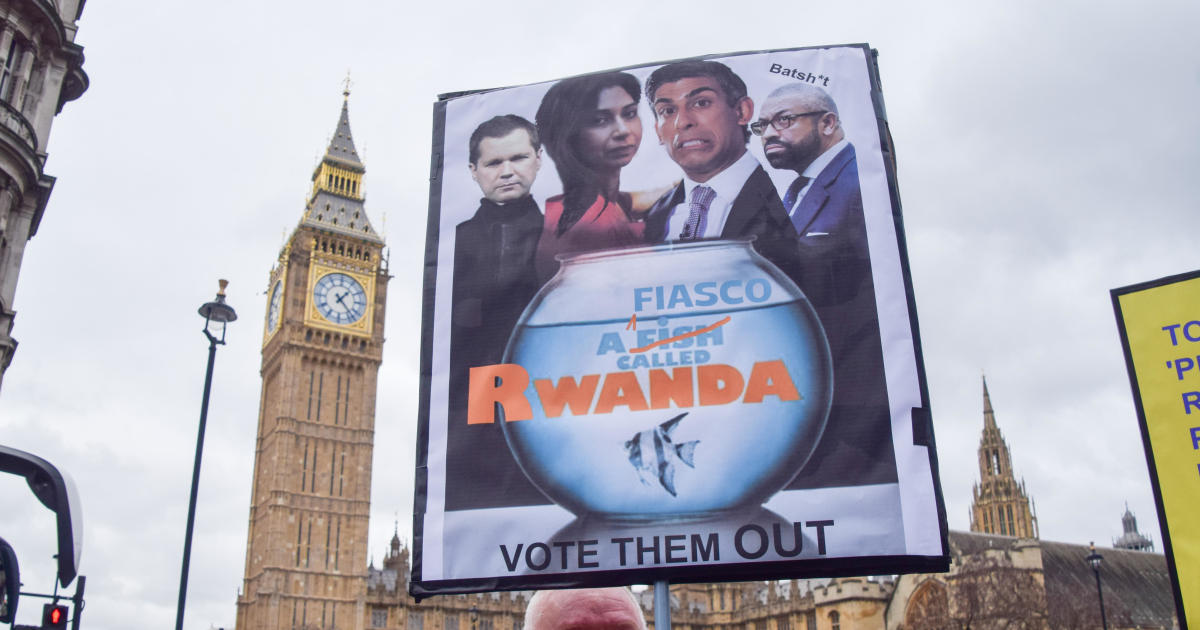Brexit could make thousands of vulnerable children undocumented immigrants in the U.K.
London — Brexit could make thousands of children under the guardianship of the British government undocumented immigrants, child advocacy groups have warned. These children urgently need to apply to the government's "settlement scheme" for European nationals or they could lose their rights to live and work in Britain, but authorities may not have the data or the documentation necessary for them to do so in time, Marianne Lagrue, a lawyer with children's legal advocacy group Coram, told CBS News.
An estimated 5,000 young people under state guardianship in Britain are at risk, including minors in group homes run by the state, foster homes, or those who have had a social worker assigned to look after them.
"There is so much confusion, including among professionals like social workers. If they don't understand what to do, how are children supposed to understand?" Lagrue said, calling it "an uphill battle to assist vulnerable people."
The U.K. is currently set to leave the EU on October 31. If there is no agreement reached with the bloc, European citizens living in Britain will have until December 31, 2020 to apply for "settled status," or lose their work and residency rights as well as the chance to apply in the future.
Mixed results in test run
Britain's Home Office says it is providing up to £9 million in funding for groups, including Coram, to help EU citizens apply for the program. But a test of the system has shown it may take more than money to address the problem.
At the end of last year, the government ran a pilot to test the process. Some local authorities were able to help children, but others had major trouble.
In London's Waltham Forest, the local government wasn't able to lodge a single application in the time-frame provided in the test.
The government said it would "make provisions" for children who miss the deadline because their guardians didn't do it for them, but less than two months before Britain's scheduled departure from the EU, how they would do that, and whether the provisions will be enough, still wasn't unclear.
Experts worry that children who fail to attain legal status could, when they turn 18 and leave the care system, find themselves suddenly in Britain as illegal immigrants, but without anywhere to go as many hold no passports.
Incomplete information on nationality
One of the reasons Waltham Forest was unable to successfully file applications for any children during the pilot was because of difficulties for European minors in coming up with the required documentation.
In the U.K., citizenship is dependent on the immigration status and residency of parents. This means a child can be born in Britain and live their whole lives there, but not be British.
Information about nationality is not always collected when a child enters the care system, Lagrue explained, so the first major hurdle facing young EU citizens in British state care — as well as the people looking after them — is even knowing what country they're citizens of. That can be difficult for children whose parents and other family members are out of the picture.
If they know where they're from, they must secure documentation to prove it and to show they meet the requirements for settled status. That includes proving five years of residence in Britain and possessing official ID documents, usually issued by the embassy of the country of citizenship, which can be difficult to get without both parents.
Britain's Home Office has acknowledged that children in care may face problems getting formal ID documents like passports from foreign embassies, and has said that in those cases, applications can be made with alternative evidence. But Lagrue said the government hasn't made it clear what that means, and that granting a child permission to remain in Britain without granting them British citizenship could effectively trap them in the country.
"While applying without a passport might solve the problem of giving the child status in the U.K. in the short term, it doesn't solve the problem of that child not being able to access or evidence their (European) nationality," she told CBS News. "What if they want to travel?"
"At a time when there is so much uncertainty for young people, many of whom were born and have grown up in this country, it is vital the government seriously considers implementing a declaratory system to give automatic rights to all European nationals and supports them to secure their British citizenship where possible," Ilona Pinter, policy and research manager at The Children's Society and co-chair of the Refugee and Migrant Children's Consortium, said in a statement.
"This includes vulnerable children and young people so they do not fall into destitution and despair."



